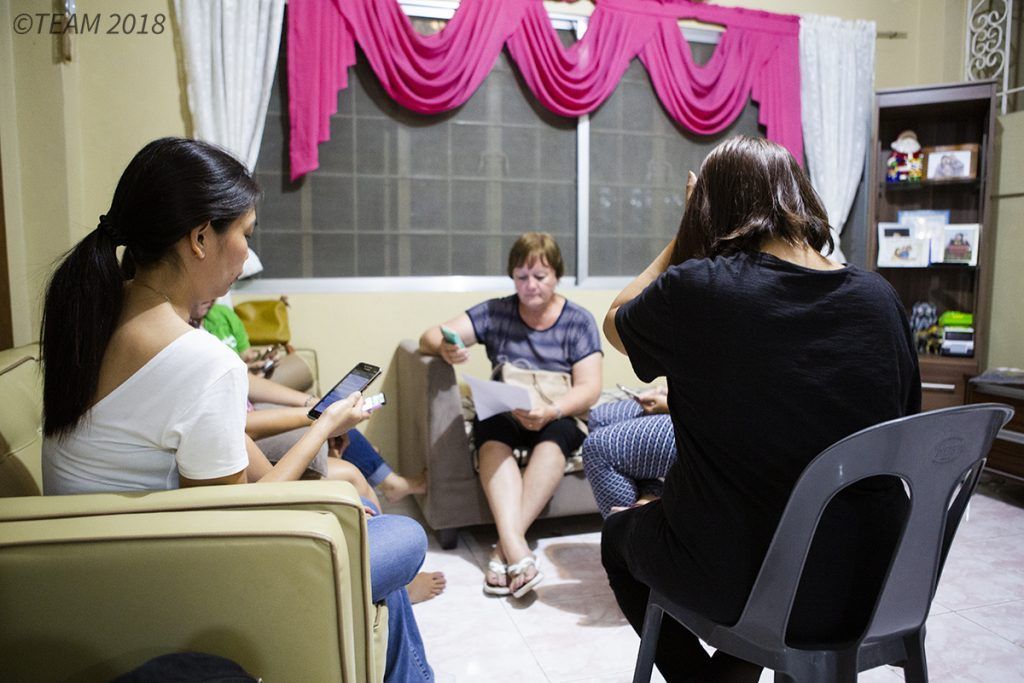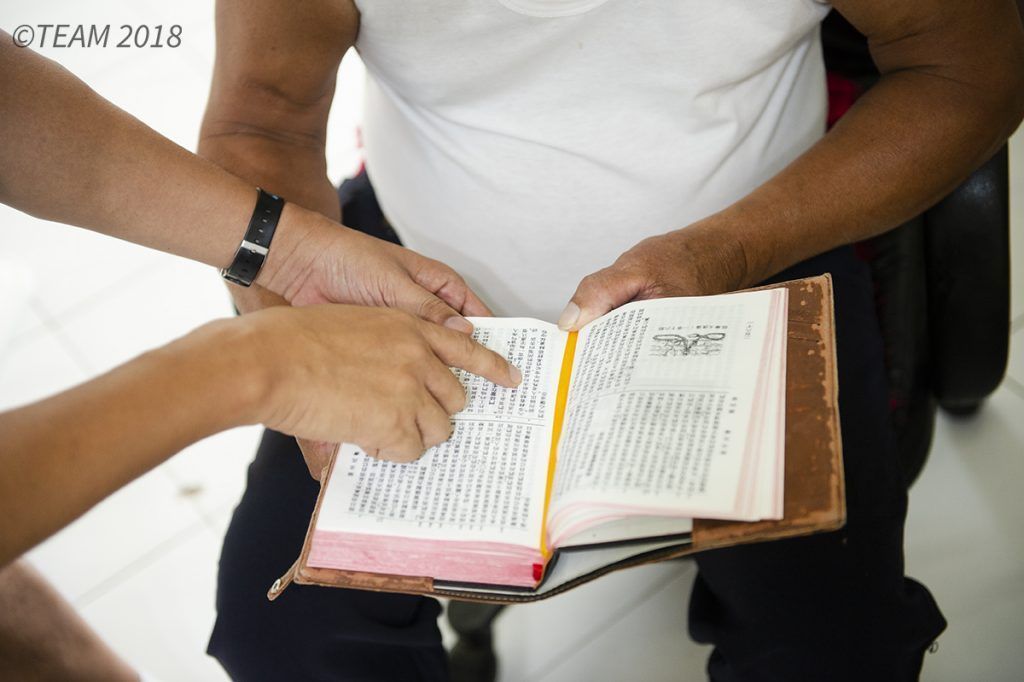Leticia* thought she was only going out to pick up her senior discount card. She never expected the errand to change her life forever.
But as the she stood in line, Leticia began chatting with the woman next to her. Two hours later, a clear friendship had formed. And two weeks after that, Leticia invited her new friend over for a visit.
Leticia’s new friend was TEAM missionary Sandy Rios, who serves in Mexico with her husband . The couple eagerly accepted Leticia’s invitation. And soon, they began a small Bible study with Leticia and her two brothers.
Leticia didn’t know God, but she was eager to hear what the Rioses had to say about Him. The Rioses were with Leticia through her husband’s death and one of her brother’s illnesses — all the while, faithfully studying God’s word with her.
After months of personal grief and spiritual hunger, Leticia asked Sandy how to become a Christian. That week, Leticia gave her life to Christ!
This month, we’re praying for seeker Bible studies, like the one that led Leticia to Christ! These simple studies let nonbelievers get to know God and ask questions in a low-pressure environment. Will you pray with us that these studies will be effective?
Sign up here to get the new Prayer Focus in your inbox each month.
1. Ask God to guide missionaries in what they share.
When it comes to leading a seeker Bible study, it’s not just about having a good lesson plan. Seekers study God’s word because they have questions — and those questions aren’t always what study leaders are expecting. Missionaries need knowledge and flexibility to give good answers.
TEAM missionary Matthew T. sees this regularly in the Czech Republic , where most people are atheists. The young adults have a unique desire to know a higher power, but their upbringing makes them skeptical .
“They often have many questions, and they need to take a long time before they make any changes to their beliefs or steps of faith — often years,” Matthew says.
Ask the Holy Spirit to guide missionaries as they answer questions, new and old. Pray for good conversations that plant seeds and ultimately lead seekers to follow God. Pray that missionaries will persevere in answering questions, even if it takes years of commitment.

People come to seeker studies with all kinds of different questions. Pray that missionaries will know how to answer them with clarity, wisdom and true understanding.
2. Pray that seekers will stay committed to studying Scripture.
Sometimes, seekers start going to Bible studies with the best of intentions — and then life happens.
When COVID-19 hit, TEAM missionary Lois D. had just started a seeker Bible study with a young woman, Alejandra. Lois suggested that they move to video chat, but Alejandra’s phone didn’t have that function.
The two women could have given up there. But instead, they decided to do the study over a regular, old-fashioned phone call . And God has been faithful to clear away all other distractions.
“It’s amazing to me that although she has three children, one of them a baby, we never hear a peep out of any of them during the Bible study,” Lois says.
Pray that seekers will make their Bible studies a priority. Ask God to show seekers and missionaries how they can continue to meet even when life takes unexpected turns. And pray that each study will make seekers’ hunger for God grow.
3. Pray that seekers will embrace Jesus and lead Bible studies of their own.

When students finish a seeker study, many are excited to share what they’ve learned with others! Pray that these new believers will be bold enough to start their own seeker studies.
“I’ve been a Muslim for 60 years, and Allah has never spoken to me once. Tonight, I read the Bible for the first time, and God spoke to me. I want what you have.”
As a Bible study leader, TEAM missionary Bill T. loves hearing words like these from his students. But the story doesn’t end with salvation. Bill also wants to train seekers to share Christ’s message with others . To do this, Bill uses the Discovery Bible Study method.
DBS uses seven questions to help seekers study the Bible in a thoughtful way. Once new believers know the questions, it’s easy to hold simple Bible studies with friends and family.
Pray for seekers to know Christ and lead others to Him . Pray that missionaries will give new believers the right tools to share their faith effectively.
Thank you for partnering with us in prayer! Click here to get a print-out of this month’s Prayer Focus requests and praise reports .
*Name changed.




















